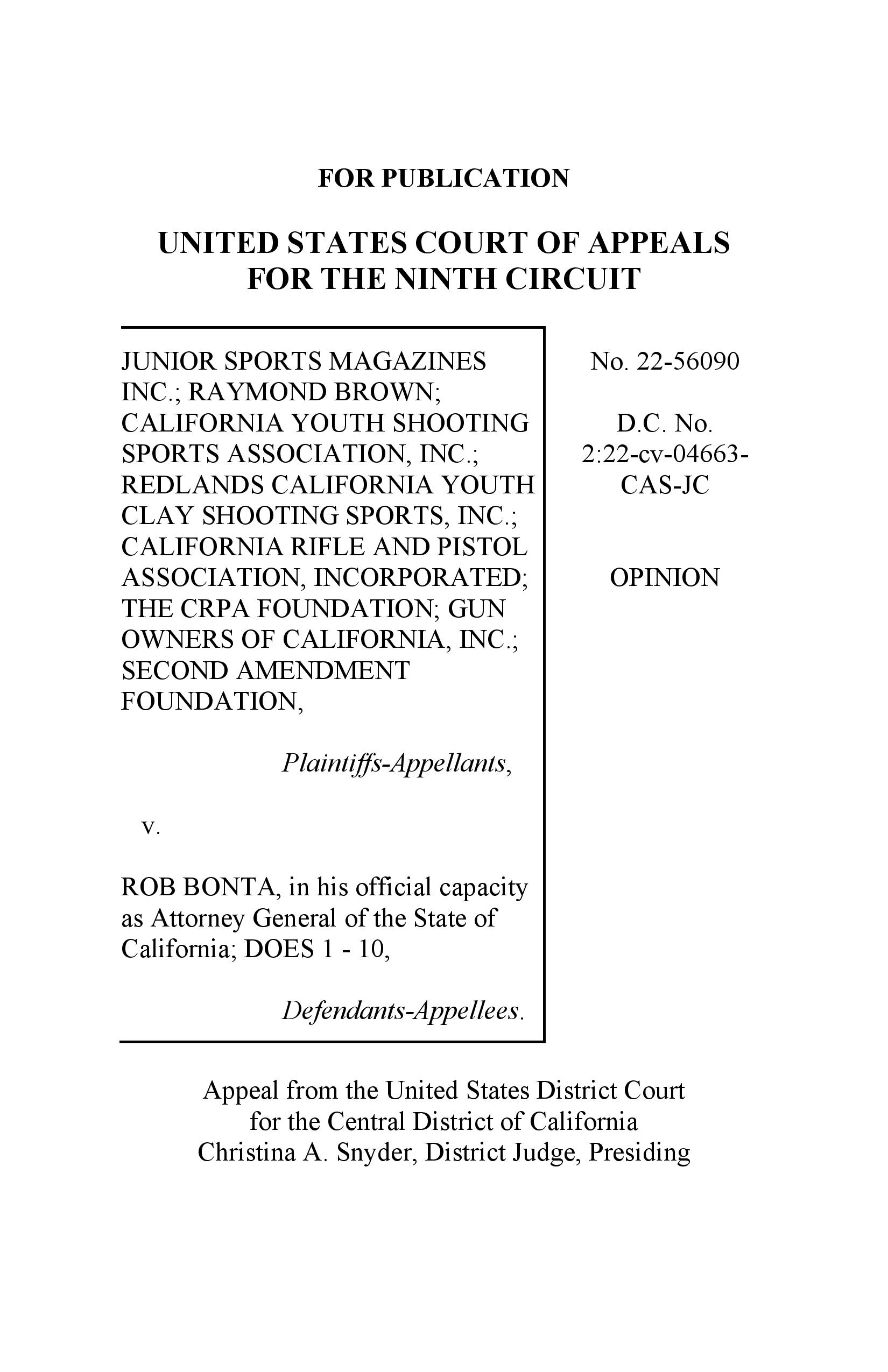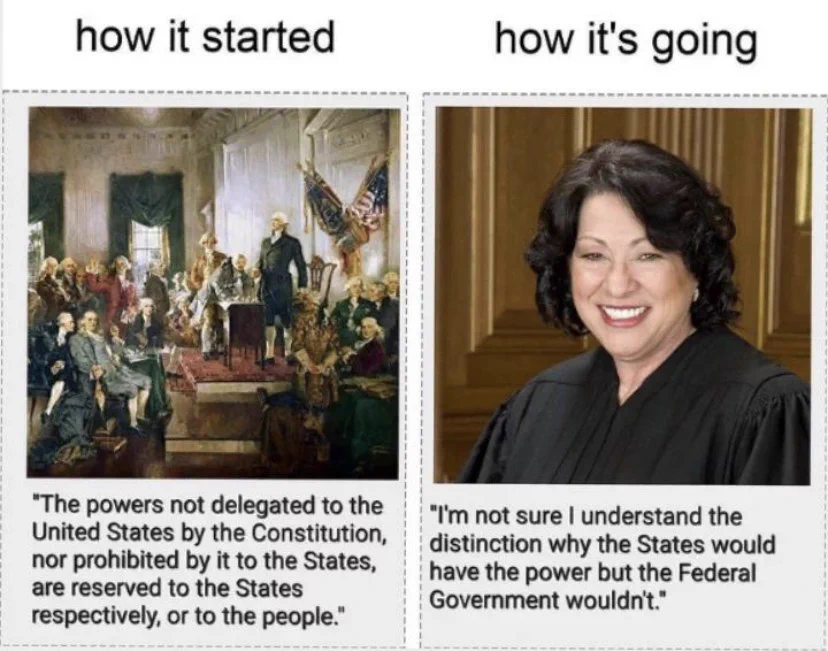The next question is whether California will appeal for an en banc appeal to the full court, the court will itself ‘sua sponte’ make itself go en banc, or not.
Gun owners win new bid to challenge California’s open-carry restrictions
A federal appeals court on Thursday gave two gun owners another shot at blocking California’s restrictions on openly carrying firearms in public, citing a major U.S. Supreme Court ruling last year that expanded gun rights.
A three-judge panel of the 9th U.S. Circuit Court of Appeals ruled that a lower-court judge applied the incorrect legal standard when she declined last year to issue a preliminary injunction barring enforcement of California’s law.
The gun owners, Mark Baird and Richard Gallardo, have been challenging the laws since 2019, saying California’s restrictions on openly carrying handguns in public violates their right to keep and bear arms under the U.S. Constitution’s Second Amendment.
U.S. District Judge Kimberly Mueller in Sacramento, an appointee of former Democratic President Barack Obama, declined in December to block enforcement of the restrictions, saying doing so could endanger public safety.
But U.S. Circuit Judge Lawrence VanDyke, who was appointed by former Republican President Donald Trump, said Mueller failed to analyze a key factor–whether Baird and Gallardo would likely succeed on the merits of their constitutional claim.
VanDyke, whose opinion was joined by two fellow appointees of Republican presidents, stressed that the right to bear arms was not a “second-class right,” and he said the importance of evaluating the plaintiffs’ claims “does not change where the constitutional violation at issue is a Second Amendment violation.”
Amy Bellantoni, a lawyer for the plaintiffs, welcomed the ruling. “California’s open carry regulations are repugnant to the plain text of the Second Amendment and a preliminary injunction should follow,” she said in a statement.
A spokesperson for the office of California Attorney General Rob Bonta, a Democrat, said in a statement that the office was reviewing the decision. “It is important to note that criminal penalties for the unlicensed open carry of firearms remain in effect,” the statement said.
Openly carrying a firearm is generally illegal in California, with narrow exceptions. Only counties with populations of less than 200,000 — which combined account for about 5% of state residents — may issue open-carry permits.
But Baird and Gallardo, who reside in these smaller counties, said they have been unable to obtain such a license.
Their lawsuit gained new support in June 2022, when the conservative-majority U.S. Supreme Court declared for the first time that the Second Amendment protects an individual’s right to carry a handgun in public for self-defense.
That decision, New York State Rifle & Pistol Association v. Bruen, set forth a new test for assessing firearms laws, saying restrictions must be “consistent with this nation’s historical tradition of firearm regulation.”
The ruling has led to many other gun safety laws being struck down across the country. The Supreme Court in November will consider whether to uphold a federal ban on people under domestic violence restraining orders from possessing firearms.
In Thursday’s ruling, VanDyke said that on remand, Mueller must assess whether under Bruen, California’s laws are “analogous to regulations widely in effect in 1791 or 1868,” when the 14th Amendment to the Constitution was adopted.
He said Mueller must reevaluate the issue “expeditiously.”
The case is Baird v. Bonta, 9th U.S. Circuit Court of Appeals, No. 23-15016.





